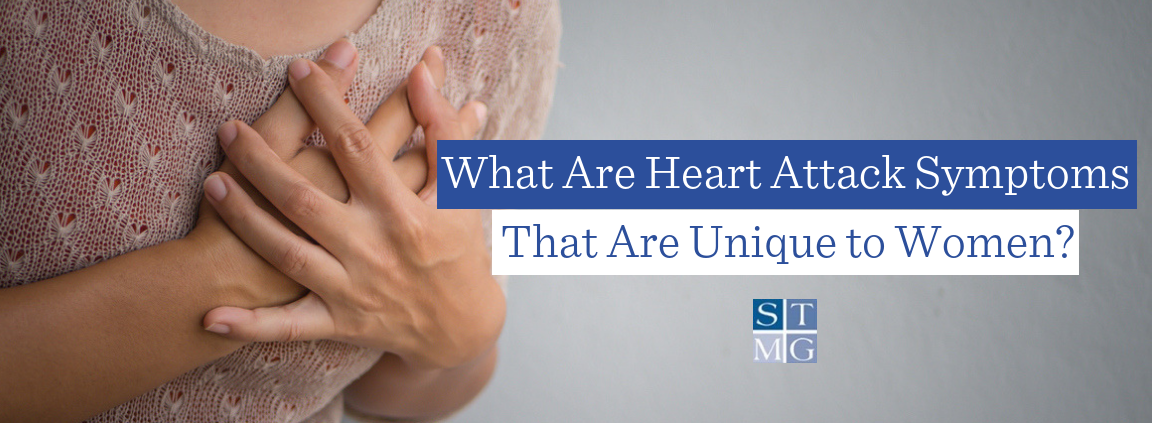What are the Heart Attack Symptoms Unique to Women?
Eye popping, chest clutching, forward slouching exasperation… that’s what a heart attack might look like on TV. But it’s not how heart attack symptoms actually play out in many real life cases. And it’s especially not an accurate representation of how women experience heart attacks.
In fact, men and women can experience heart attack symptoms quite differently. And, by the way, heart disease isn’t just a man’s problem. According to the Centers for Disease Control and Prevention, “Heart disease is the leading cause of death for women in the United States.”
Heart disease is responsible for one in four female deaths, and approximately the same number of men and women die from heart disease each year. Nearly two-thirds of women who die from heart disease have no previous symptoms.
Heart Attack Symptoms in Women
In women, heart attack symptoms may include:
- Angina (chest pain/discomfort that may range from dull to sharp)
- Pain in the neck, jaw, throat, upper abdomen or back. (These areas can be more common among women than men.
- Additionally, this pain is more likely to be characterized by women as “sharp” or “burning.”)
- Indigestion, heartburn, nausea or vomiting
- Extreme fatigue
- Shortness of breath
- Note: some women may experience no symptoms at all.
If you experience any of the above symptoms, call 911 immediately.
While chest pain is the #1 symptom for both men and women, women are more likely to experience the other pains described above, as well as shortness of breath and nausea/vomiting.
How You Can Reduce Your Risk for Heart Attack
A heart attack occurs every 43 seconds in the United States. However, you don’t have to be a victim. Talk to your internal medicine doctor at St. Thomas Medical Group about how you can manage risk factors such as diabetes, poor diet, being overweight or obese, lack of physical activity, and excessive alcohol use.
Risk reduction techniques may include:
- Managing high blood pressure through diet, exercise or medication.
- Getting tested for diabetes (if recommended by your health care provider).
- Quitting smoking (if currently a smoker).
- Learning and implementing healthy dietary habits.
- Lowering stress levels.
- Limiting alcohol consumption to one drink per day.
See an Internal Medicine Doctor In Nashville
Do you need a physician who will partner with you in your heart health? Meet the internal medicine providers at St. Thomas Medical Group. For more information or to schedule an appointment, please call +1 (615) 297-2700. You can also request an appointment online.



